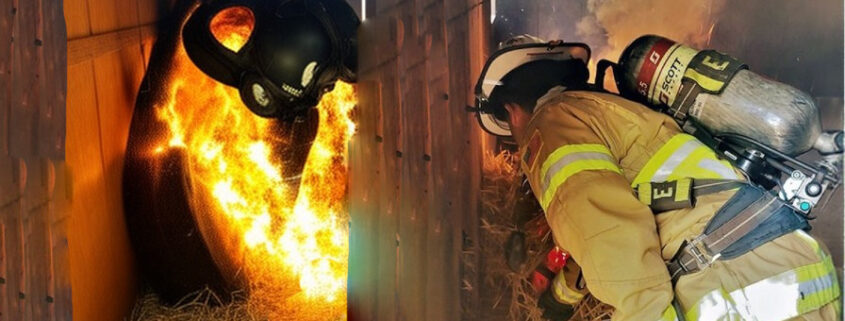How Do We Help Those Who Serve?
I have a vivid memory as a kid sitting in my dining room and watching my father and brother rush out of the house after their pagers went off for a fire call. I also remember my father taking me up to the fire house as a kid to explore the monstrous fire trucks. I can even remember the chemical smell of the fire house that stuck with me until the day I joined the volunteer fire company my father grew up in.
One thing that I don’t remember is looking at my father or brother and thinking, “I hope they’re okay” – because they were ALWAYS okay. Firefighters don’t show fear or struggle because they have no fears or struggles. That’s why they’re firefighters, right?
Now as a volunteer firefighter and slightly seasoned clinical social worker, I can confidently say that my childhood belief is a misconception. I will give my younger self some credit that first responders seem to experience danger and trauma quite differently than civilians, but we are still human like everyone else.
First responders deliberately volunteer or enter careers to be on the front line of a civilian’s potential worst day. The fight-or-flight response inherent in humans that makes us aware of danger is present in first responders, but deny it over and over again with the hope of saving others or their property. We must make decisions quickly and participate in some of the least ideal circumstances to help and protect others. On a good day, we leave an incident feeling relief and hope for those we helped. On a bad day… we never quite know how we’ll be feeling or how to cope with it.
Post Traumatic Stress Disorder vs. Complex Post Traumatic Stress Disorder
Post Traumatic Stress Disorder (PTSD) is exactly what it sounds like – after a person witnesses and/or experiences a traumatic incident, they develop a disordered level of stress as a result. When left unresolved, it can turn into a chronic condition where a person experiences stress in response to triggers that typically would not cause a stress reaction. Complex PTSD (CPTSD) is a condition first responders are at risk of developing due to repeated exposure to trauma that also accumulates the longer they are in the field.
How Do We Help?
Emergencies and threats of any kind will exist as long as we do. In order to improve the performance and quality life of first responders, the first step is letting us know it’s okay if we AREN’T okay. We can mentally prepare ourselves for a lot of different types of incidents. We can justify the fact that we didn’t cause the emergency that arose and we did everything we could. But what we can’t do is prepare for that one incident, or handful of incidents, that we just can’t shake off. Our support networks can play an important role in reassuring us that it’s okay to accept help to heal our mental wounds, and it’s not a sign of weakness. In fact, it often can take great courage to accept help. Luckily, courage is a trait first responders have in great abundance. We as first responders need to take care of ourselves so we can help and protect others. Therapy can help us restore our mental strength to continue providing our much needed services in times of crisis.


